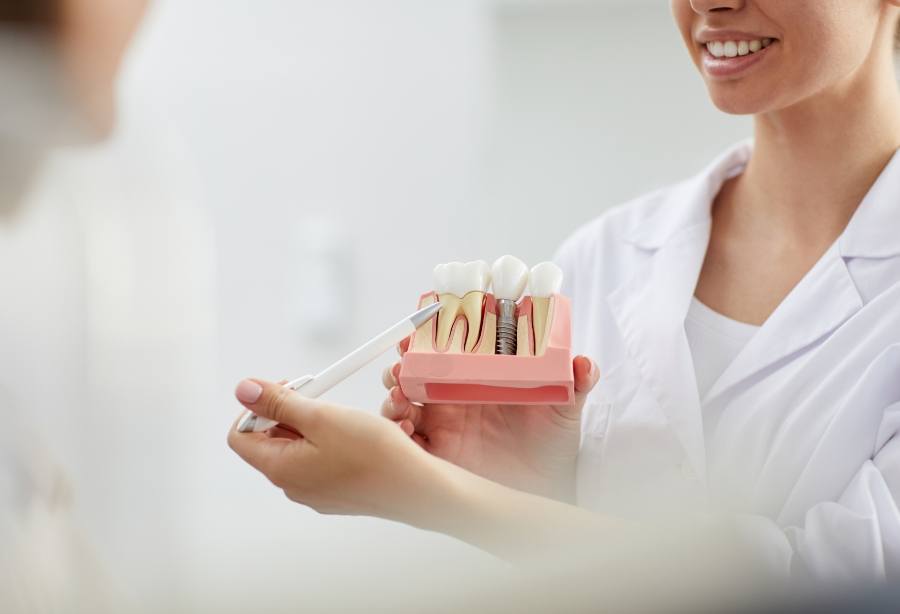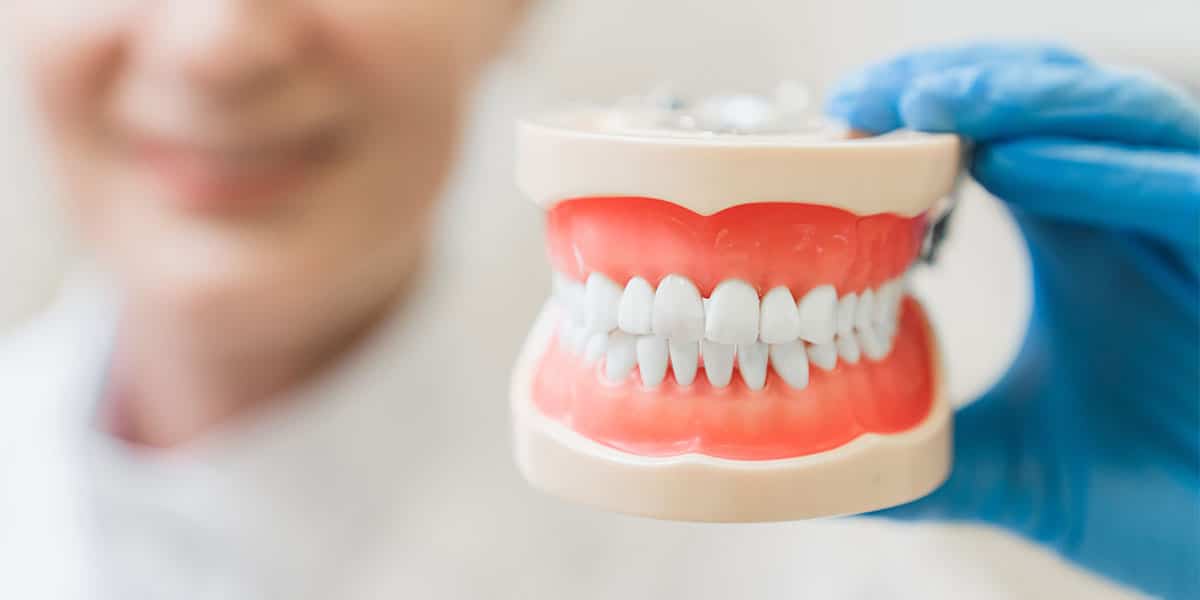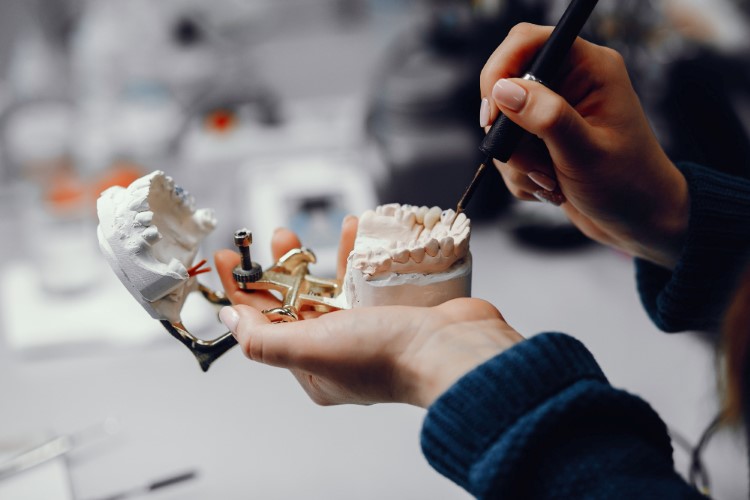Missing teeth can make it hard to eat, talk, and keep your mouth healthy, not just look bad. Dental implants are frequently thought of as the best way to replace teeth, but they aren’t right for everyone because of things like expense, health issues, or personal choice. Fortunately, there are several options accessible, each one made to fit different demands and situations. When you know your alternatives, you can make a smart choice that fits with your lifestyle and dental health goals.
Your Longer List of Options Besides Dental Implants
If dental implants aren’t a possibility for you, look into these other options to find the best one:
1. Teeth for the Same Day
Same-day teeth, often called immediate-load implants, involve taking out broken teeth and putting in implants all in the same visit. This method gives quick results and brings back both function and looks.
Pros:
Easy to use and saves time
Lets you use the new teeth right away
Drawbacks:
Needs a strong, healthy jawbone to be stable
More likely to fail than standard implant techniques
2. Mini Implants

Mini implants are smaller implants that don’t require as much surgery and are usually cheaper. People often use them to keep dentures in place or to replace tiny teeth.
Pros:
A quicker and easier process
Costs are lower than with full-sized implants.
Disadvantages:
Not very strong or durable
May not be able to handle greater restoration demands
3. Traditional Dental Bridges
To replace lost teeth, traditional bridges prepare the teeth next to them for crowns, which subsequently hold the prosthetic tooth in place.
Pros:
Not too expensive; each tooth costs between $500 and $1,200.
Faster treatment times than implants
Cons:
Needs to take off enamel from healthy teeth
Usually has to be replaced every 5 to 7 years.
4. Dental Bridges with Adhesive
This bridge option has a fake tooth that is held in place by wings that are glued to the teeth next to it. This method keeps more of the tooth’s natural structure.
Pros:
Not very invasive
Keeps healthy tooth material
Disadvantages:
Can get loose as time goes on
Not as strong as regular bridges
5. Partials
Partial dentures are removable devices that are made to fill in for one or more missing teeth. A metal or glass frame supports them.
Pros:
Affordable and not invasive
Good for replacing more than one tooth
Drawbacks:
Some people find it inconvenient that it has to be taken off at night.
Changes may be needed as the gums and bone move over time.
6. Full Dentures

Full dentures replace an entire arch of missing teeth and are entirely removable. They’re a common solution for patients missing most or all their teeth.
Pros:
- Affordable option for significant tooth loss
- No surgery required
Cons:
- Can feel bulky and less natural
- Regular adjustments may be necessary for comfort
7. Bridges with resin bonds
Resin-bonded bridges, often called Maryland bridges, are another option that doesn’t need a lot of work on the teeth next to them. A resin foundation holds the prosthetic to the backs of the teeth next to it.
Pros:
Keeps the shape of natural teeth
A faster, less intrusive process
Disadvantages:
Not as long-lasting as other ways
Best for replacing teeth in the front of the mouth
8. Implants for All-on-4
all on 4 implants Istanbul uses four implants in the right places to support a whole arch of teeth. It’s a terrific choice for people who want a permanent but affordable solution.
Good things:
Needs fewer implants than other approaches do
Provides a long-lasting, reliable way to replace a whole row of teeth
Cons
Costs more up front than bridges or dentures that can be taken out
Needs healthy bones to hold the implants in place
9. Not Doing Anything
Another choice is to leave the gap as it is, especially if the tooth that is missing is not noticeable or important for chewing.
Pros:
No money or work needed
Cons:
Over time, teeth might move, which can change how you bite and line up.
The possibility of further problems with dental health in the future
Why Should You Think About Other Options Besides Dental Implants?
Even if dental implants work, they aren’t always the best option. The price of one implant is between $3,000 and $4,500, and you need to have good oral health and enough jawbone density for the treatment to work. Some health problems, such diabetes or autoimmune disorders, can make it harder for implants to work with the body. Because of these things, alternatives are a good choice for a lot of people. Also, since 178 million Americans are missing at least one tooth, there is a lot of need for different types of tooth replacements that match varied budgets and medical demands.
Questions That Are Often Asked
1. What is the least expensive option to dental implants?
Partial dentures are usually the cheapest choice, with prices starting around $100, depending on the provider and the material used.
2. Are there ways to restore missing teeth that don’t involve surgery?
Yes, resin-bonded bridges and removable partial dentures are two options that don’t require surgery and can help with both function and beauty.
3. How long do dental bridges stay in place?
On average, traditional bridges survive between 5 and 7 years, but with the right care, they can last up to 10 years.
4. Is it okay to eat regularly with dentures?
Yes, although it can take some time to get used to it. At first, you should eat soft foods. After getting used to them, modern dentures work well.
5. Is a bridge made of resin healthy for rear teeth?
Not great. These bridges are preferable for front teeth because they don’t put as much pressure on the bite and look nicer.
6. Are tiny implants safe?
Yes, especially for people who don’t have a lot of bone density. But they might not last as long as full-sized implants.
7. If I choose dentures now, may I switch to implants later?
Of course. A lot of patients start with dentures and then switch to implants when they are ready, able to afford them, and healthy enough.
Choosing the Right Thing for Your Smile
Knowing the advantages and cons of each option and how they fit your needs is the key to choosing the appropriate one. Your decision should be based on things like your finances, your overall health, your cosmetic aspirations, and how well your mouth works. It’s important to see a dentist to figure out the best way to keep your teeth healthy and boost your confidence over time.
At Aesthetic Airways, our team of experienced dental professionals is here to help you find the best solution for your unique situation. Contact us today to schedule a consultation and take the first step toward your restored smile.

